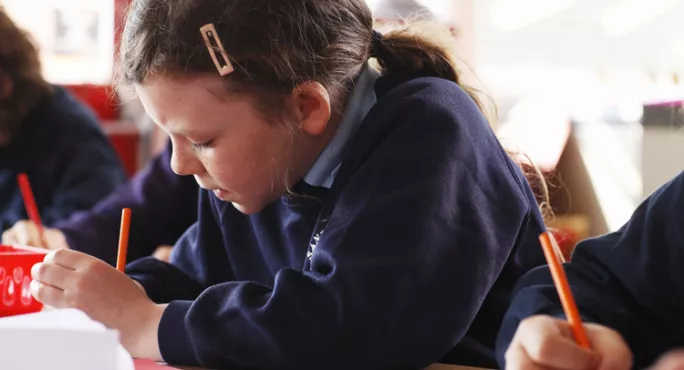- Home
- Sats create needless pressure for teachers and pupils, heads warn
Sats create needless pressure for teachers and pupils, heads warn

Almost all (98 per cent) of primary heads are warning that teachers are placed under unnecessary pressure because of Sats.
A YouGov poll for campaign group More than a Score also found that 94 per cent of primary heads felt pupils were put under stress unnecessarily – with 96 per cent concerned about the pressure of KS2 Sats on pupils’ wellbeing.
Assessing primary children under exam conditions was an unfair way to measure their academic capabilities, according to 72 per cent of the heads.
“The results of this survey demonstrate that the assessment system imposed on primary schools is neither liked nor trusted by school leaders,” Mary Bousted, joint general secretary of the NEU teaching union, said.
Quick read: Exclusive: 1 in 3 would-be Sats moderators failed first training attempt
Quick read: Sats markers told to ease up on backwards commas
Revealed: Sats week dates for 2019, 2020 and 2021
She said that while the Department for Education and Ofsted talked about reducing stress on pupils, keeping Sats in place made that impossible.
“Teachers want to work in schools where pupils are challenged, delighted, supported and engaged by their learning – it is a scandal and a tragedy that government policy frustrates these aspirations,” she added.
The survey of 230 heads and deputy heads also found that:
- More than four in five (83 per cent) primary heads say they have been contacted by parents who are concerned that KS2 Sats are making their child stressed and anxious
- 89 per cent felt KS2 Sats cause stress in teachers’ working lives
- 93 per cent said English and maths are prioritised in Year 6 to the detriment of other subjects
An overwhelming majority (93 per cent) of respondents wanted the government to review the current system of standardised assessment.
Currently, children take four statutory assessments during primary school. They are assessed by teachers at the end of the Reception year for the early years foundation stage profile, they take the phonics check at the end of Year 1, tests in reading and maths at the end of key stage 1 and tests in reading, maths, and spelling, punctuation and grammar at the end of key stage 2.
In 2020, two more statutory tests are due to be introduced – the Reception baseline assessment to be taken by 4- and 5-year-olds and the multiplication tables check in Year 4.
Last year, 64 per cent of pupils reached the expected standard for the KS2 Sats tests in reading, writing and maths.
“Over one-third of Year 6 children failed Sats last year. That’s a group of 11-year-olds being sent to secondary feeling that they haven’t achieved," Helen Longton-Howorth, head of Carden Nursery and Primary School, Brighton, said.
"The system of accountability means children are part of a machine. They’re a number, a percentage. Perhaps they’ll think that education isn’t for them.”
The survey also found that three-quarters (76 per cent) of primary heads did not think Sats were an accurate way of predicting a pupil’s future performance at secondary school.
Clare Campbell, of More Than A Score, said: “Our research highlights the top-to-bottom unfairness of the system. At the behest of the government, our children must sit high-pressure tests under exam conditions.
"Their teachers and schools are judged on the resulting data which can’t possibly provide an overall assessment of all that they are capable of, and these results then follow them all the way to GCSE level.”
A Department for Education spokesperson said: “The KS2 tests ensure that children leave primary school having acquired a secure grasp of the fundamentals of reading, writing and maths, which lay the foundation for success at secondary school and beyond. The education secretary has been clear he does not want KS2 tests to be a source of stress for either pupils or teachers and we trust teachers to administer these tests in an appropriate way that does not put undue pressure on pupils.
“Accountability is important so that we can continue to drive up standards in our schools.”
Register with Tes and you can read two free articles every month plus you'll have access to our range of award-winning newsletters.
Keep reading with our special offer!
You’ve reached your limit of free articles this month.
- Unlimited access to all Tes magazine content
- Save your favourite articles and gift them to your colleagues
- Exclusive subscriber-only stories
- Over 200,000 archived articles
- Unlimited access to all Tes magazine content
- Save your favourite articles and gift them to your colleagues
- Exclusive subscriber-only stories
- Over 200,000 archived articles



